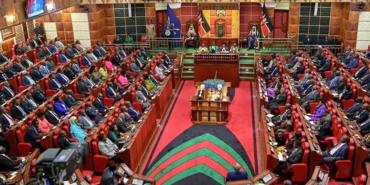Kenyan Househelp Wins Court Battle for Unpaid Wages and Benefits

Kenyan courts are seeing an increase in legal cases brought by domestic workers against their employers.
Recent rulings have shown that employers who do not follow the Employment Act of 2007 are increasingly facing financial consequences for wrongful dismissal and other breaches of labour law. Two recent cases highlight this trend.
Elizabeth Odhiambo Oduor, a former housemaid, successfully sued Dr Shalin Vora for unfair dismissal after five years of service. Although Dr Vora stated that Ms Oduor was compensated with Sh60,000, the court ruled in Ms Oduor’s favour, awarding her an additional Sh59,473 for unpaid leave, severance pay, salary underpayment, and public holiday entitlements.
Justice Jorum Nelson stated that Dr Vora had not fully complied with the Employment Act regarding redundancy procedures. Margaret Amango Jumba also won a case against her former employer, Julie Andeyo, who dismissed her via text message.
Ms Andeyo's failure to submit a defence resulted in the court awarding Ms Jumba Sh142,593 for wrongful termination, unpaid salary, housing allowance, and service pay. Justice Onesmus Makau criticised Ms Andeyo's lack of due process and stated that termination without a valid reason and fair hearing constitutes an unfair dismissal under the Employment Act.
These cases illustrate a broader problem: the informal nature of many domestic worker arrangements in Kenya. Labour law advocate William Wafula notes that domestic staff are classified as employees under Kenyan law, entitling them to full labour rights. These rights include a minimum wage, currently Sh16,113.75 per month in major urban areas, paid leave, overtime, and protection from unfair dismissal.
The Employment Act requires 30 days' notice or equivalent pay for termination, except in cases of gross misconduct established through a fair disciplinary process. Dismissals based on pregnancy or other discriminatory factors are illegal, and the courts are increasingly awarding compensation for such violations.
This can include up to 12 months' gross salary, unpaid benefits, and damages for mistreatment, with compensation for sexual harassment claims ranging from Sh100,000 to Sh500,000. Increased awareness of these rights has been promoted by unions such as KUDHEIHA.
Mr Wafula says that common complaints include unpaid wages, abrupt dismissals, mistreatment and sexual harassment. He warns that even informal verbal contracts are legally recognised, placing the responsibility on employers to provide proof of compliance.
Mr Wafula encourages employers to formalise their arrangements with domestic workers, including registering them with the National Social Security Fund (NSSF) and the Social Health Authority (SHA), deducting taxes, issuing payslips, and maintaining accurate records. Failure to do so can result in penalties of up to Sh2 million and/or three years imprisonment.








Add new comment